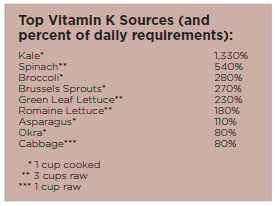Sweets and meats are among the culprits with the highest wrinkle factors.
Ever justified your sweet tooth with the notion that a few extra pounds will make wrinkles less noticeable? Like the idea of grape vs. raisin, it would seem that plumpness is next to smoothness.
Actually, high sugar intake itself harms skin elasticity. Excess sugar attaches to proteins in your bloodstream to form advanced glycation endproducts, aptly abbreviated as AGEs. Potentially, these toxins accelerate skin aging by: 1) increasing cell oxidation (think rust); 2) triggering inflammation; and 3) creating “hard” bonds on collagen and elastin fibers, restricting their youthful elasticity.
While most women I know—myself included—avoid sweets and meats in part for weight management reasons, we all know a few of those naturally thin women, unchastened by weight worries, who prefer to subsist on junk food. But these findings suggest nutrition is important not just for your waist but for your face.
If vanity fails to move you, then consider that accumulation of AGEs may also harden your arteries and hasten dementia. Chronic high blood sugar suffered by diabetics can increase their AGE levels by fifty-fold. What you eat isn’t the only factor affecting AGEs; how you cook your food matters too. High, dry heat (grilling, broiling, microwave) creates more AGEs than moister methods, like boiling or poaching. Using lemon juice and vinegar in marinades helps off set AGE production. Processed meats contain the most AGEs, while raw food, fruit and vegetables contain the fewest.


“We’ve known obesity increases your risk of many diseases and of dying early. What’s novel here is that it seems that fat itself actually accelerates the aging process,” says study author Dr. Tim Spector of St. Thomas Hospital in London.
Fruits and vegetables are your best bulwark against age-accelerating obesity. Moreover, such nutrient-dense foods help to thwart nutrient deficiencies—another potential cause of accelerated aging.
Dr. Bruce Ames, a molecular geneticist internationally celebrated for his groundbreaking work on the link between nutrition and DNA integrity, is famous for his “triage theory” of nutrition, which holds that nutrient deficiencies can accelerate aging by forcing the body to sacrifice long-term DNA repair in favor of the body’s immediate needs.


Poor diets, whether it’s low-carb diets or fast food diets, tend to skimp on those foods that will give you the nutrients and antioxidants you need to both protect and repair DNA damage. That’s why fruits and vegetables are so important—they’re rich sources of those compounds that serve as “armor” for your DNA.
Jennifer A. Grossman is a senior vice president of the Dole Food Company who directs the Dole Nutrition Institute in Westlake Village, Calif. She is a frequent writer about food and nutrition, including for the award-winning Dole Nutritional News.











